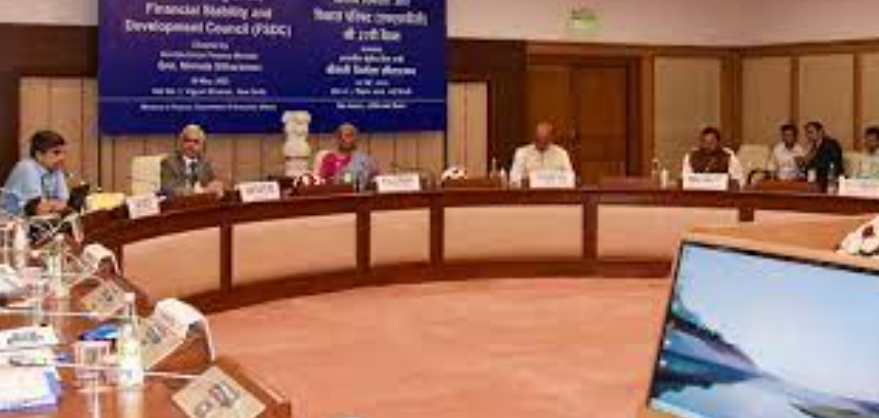Financial Stability and Development Council
The Financial Stability and Development Council (FSDC) is a high-level body established by the Government of India to strengthen and institutionalize the mechanism for maintaining financial stability, enhancing inter-regulatory coordination, and promoting financial sector development in the country.
Background
The global financial crisis of 2008-09 highlighted the need for a comprehensive and integrated approach to financial sector regulation and supervision. In this context, the Government of India set up the FSDC in December 2010 as an apex-level forum to deal with issues related to financial stability, financial sector development, and inter-regulatory coordination.
Composition
The FSDC is chaired by the Union Finance Minister and has the following members:
- Governor, Reserve Bank of India (RBI)
- Finance Secretary
- Secretary, Department of Economic Affairs
- Secretary, Department of Financial Services
- Chief Economic Adviser
- Chairman, Securities and Exchange Board of India (SEBI)
- Chairman, Insurance Regulatory and Development Authority of India (IRDAI)
- Chairman, Pension Fund Regulatory and Development Authority (PFRDA)
- Chairman, Insolvency and Bankruptcy Board of India (IBBI)
The FSDC also has a Sub-Committee, which is chaired by the Governor of the RBI and includes representatives from the other regulatory bodies.
Functions
The key functions of the FSDC include:
- Macro-prudential supervision: The FSDC monitors macro-prudential indicators and conducts regular assessments of macro-economic risks and financial stability risks.
- Inter-regulatory coordination: The FSDC facilitates coordination among the various financial sector regulators to ensure a comprehensive and integrated approach to financial sector regulation and supervision.
- Financial sector development: The FSDC works towards developing and implementing policies to promote the development of the financial sector, including measures to enhance financial inclusion, deepen financial markets, and improve access to finance.
- Financial literacy and consumer protection: The FSDC promotes financial literacy and consumer protection to ensure that consumers are well-informed and protected in their dealings with financial sector entities.
- Crisis management: In the event of a financial crisis, the FSDC is responsible for coordinating the response of the various regulatory bodies and ensuring a swift and effective resolution.
Achievements
Since its inception, the FSDC has played a crucial role in promoting financial stability and development in India. Some of its key achievements include:
- Development of a Financial Stability Report, which provides a comprehensive assessment of the risks to financial stability in the country.
- Establishment of an Early Warning System to detect and mitigate potential risks to financial stability.
- Coordination among the various regulatory bodies during the COVID-19 pandemic to ensure the smooth functioning of financial markets and the provision of essential financial services.
- Implementation of measures to promote financial inclusion, such as the Pradhan Mantri Jan Dhan Yojana (PMJDY) and the Pradhan Mantri Mudra Yojana (PMMY).
- Development of a National Strategy for Financial Inclusion to provide a comprehensive roadmap for enhancing financial inclusion in the country.
The Financial Stability and Development Council plays a vital role in promoting financial stability and development in India. By facilitating coordination among the various financial sector regulators and implementing measures to promote financial inclusion and consumer protection, the FSDC has contributed significantly to the growth and resilience of the Indian financial sector. As the Indian economy continues to grow and evolve, the FSDC will remain an essential forum for ensuring the stability and development of the financial sector.


